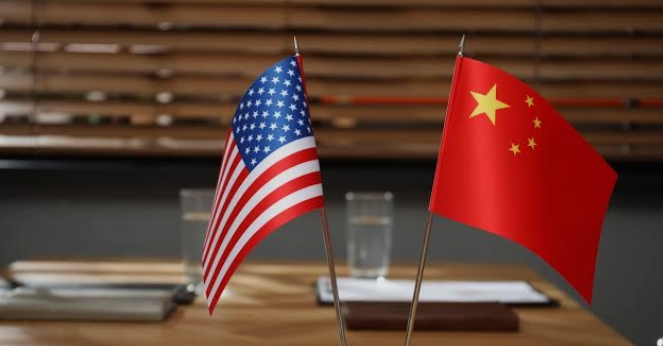
US and China Reach Temporary Tariff Reduction Deal to Ease Trade War

In a significant move to ease tensions between the world’s two largest economies, the United States and China announced on Monday that they have reached an agreement to temporarily reduce the hefty tariffs they had imposed on each other. This agreement marks a crucial step towards defusing the ongoing trade war that has posed a serious threat to global economic stability.
According to a joint statement, both countries have agreed to suspend their respective tariffs for 90 days while negotiations continue. As part of the deal, the United States will lower its tariff on Chinese imports from the current 145 percent to 30 percent. Meanwhile, China will reduce its import duty on American goods from 125 percent to 10 percent. The temporary reduction aims to give both sides more time to reach a comprehensive agreement without further economic strain.
Treasury Secretary Scott Bessent, speaking at a news conference in Geneva where the talks concluded, emphasized that both sides recognized a mutual interest in preventing a complete economic decoupling. "The consensus from both delegations is that neither side wanted a decoupling," Bessent stated, highlighting the need for continued dialogue.
The prolonged trade dispute had caused severe disruptions to both economies, as many American businesses had halted orders from China, hoping for a resolution. Similarly, Chinese manufacturers had faced a drastic drop in orders from the United States, exacerbating the challenges facing China’s already sluggish economy.
The news of the temporary tariff reduction had an immediate positive impact on global financial markets. In Hong Kong, the benchmark index surged by 3 percent, while S&P 500 stock futures in the United States saw a similar increase, reflecting investor optimism that a resolution could be on the horizon.
Bessent, alongside United States Trade Representative Jamieson Greer, also discussed a key issue during the negotiations: the trafficking of chemical ingredients used to manufacture fentanyl. The Trump administration had previously imposed a 20 percent punitive tariff on Chinese exports, citing China’s failure to curb the flow of fentanyl into the United States. According to Bessent, the Chinese delegation acknowledged the severity of the fentanyl crisis and expressed a willingness to address the issue.
The talks were marked by what Greer described as "mutual understanding and mutual respect." However, he also pointed out that China had been the only nation to retaliate after President Trump imposed reciprocal tariffs on numerous countries last month. Despite these lingering tensions, the temporary deal reflects a cautious optimism on both sides.
The trade war between the United States and China has been ongoing for several years, characterized by tit-for-tat tariff hikes that have affected industries from agriculture to technology. The recent agreement marks a rare moment of cooperation, signaling that both sides are willing to take steps to reduce economic fallout while seeking more durable solutions.
While the 90-day tariff suspension offers temporary relief, experts caution that much work remains to resolve the underlying issues that sparked the trade war. These include intellectual property disputes, market access barriers, and accusations of unfair trade practices. Nevertheless, the announcement has provided a much-needed respite from the escalating economic conflict.
As negotiations progress, businesses on both sides of the Pacific are cautiously optimistic that a more lasting solution can be achieved. In the meantime, the temporary tariff reduction offers a chance for both economies to stabilize and for trade relations to slowly normalize.
This story is developing, and further updates are expected as the negotiations continue. Stakeholders from both countries will be watching closely to see whether this temporary reprieve can lay the groundwork for a more comprehensive agreement that benefits both sides.
For now, the agreement represents a welcome pause in a trade war that had shown no signs of abating, giving both nations a crucial opportunity to recalibrate their economic strategies and find common ground.


